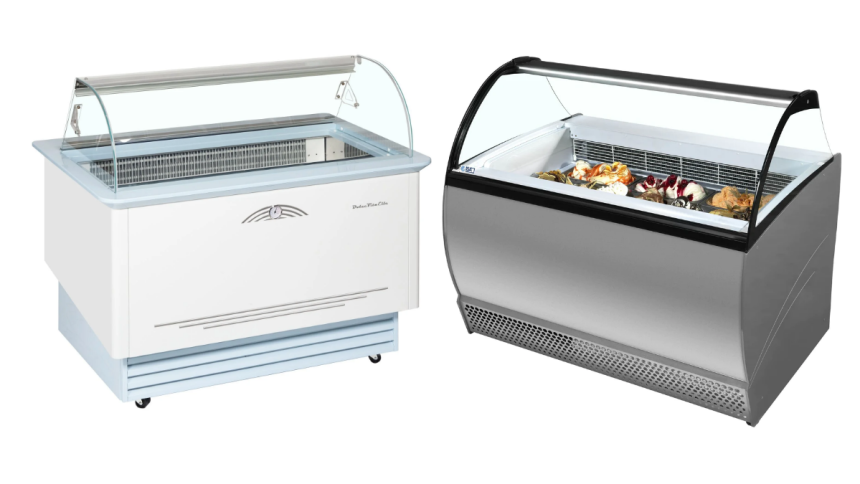Refrigeration equipment is used to remove heat from a space or object, and then transfer that heat to another space or object. This process is used to keep food and other products cold, to cool air in buildings, and to power air conditioners.
The basic components of a refrigeration system are the compressor, the condenser, the expansion device, and the evaporator. The compressor is the heart of the system, and it is responsible for compressing the refrigerant gas. The condenser is where the refrigerant gas is cooled and condensed back into a liquid. The expansion device is where the refrigerant liquid is allowed to expand, which causes it to vaporize and absorb heat. The evaporator is where the refrigerant vapor absorbs heat from the space or object that is being cooled.
There are two main types of refrigeration systems: vapor compression systems and absorption systems. Vapor compression systems are the most common type of refrigeration system, and they use a refrigerant gas that is compressed and then allowed to expand. Absorption systems use a refrigerant liquid that is absorbed by a hygroscopic material, and then released to evaporate.
Refrigeration equipment is used in a wide variety of applications, including:
– Domestic Refrigeration: Domestic refrigerators are a staple in modern households. These units use a compression system to cool and preserve food, ensuring that it stays fresh for an extended period. Over the years, these refrigerators have undergone significant improvements, becoming more energy-efficient and equipped with features like smart technology, water dispensers, and temperature-controlled compartments.
– Commercial Refrigeration:
The commercial sector heavily relies on refrigeration equipment to store and display perishable items in supermarkets, restaurants, and food processing plants. Walk-in coolers, wine fridges to cool white wine, display cases, and reach-in freezers are just a few examples of the diverse commercial refrigeration units available, tailored to meet specific industry needs.
– Industrial Refrigeration:
Industries such as pharmaceuticals, petrochemicals, and manufacturing rely on large-scale industrial refrigeration systems to preserve raw materials, finished products, and maintain critical processes. These systems are designed to withstand high demands, offering precise temperature control and compliance with strict regulations.
– Transportation Refrigeration:
This includes refrigerated trucks, trailers, and shipping containers.
– Medical Refrigeration:
This includes medical refrigerators, freezers, and incubators.
Refrigeration equipment from top companies such as Chillcooler is an essential part of our modern world, and it is used to keep us cool, comfortable, and healthy.
Types of Refrigeration Equipment
There are many different types of refrigeration equipment available, each with its own unique set of features and benefits. Some of the most common types of refrigeration equipment include:
– Refrigerators:
Refrigerators are the most common type of refrigeration equipment, and they are used to store food and beverages. Refrigerators typically use a vapor compression system, and they are available in a variety of sizes and styles.
– Freezers:
Freezers are used to store frozen food and beverages. Freezers typically use a vapor compression system, and they are available in a variety of sizes and styles.
– Air conditioners:
Air conditioners are used to cool air in buildings. Air conditioners typically use a vapor compression system, and they are available in a variety of sizes and styles.
– Chillers:
Chillers are used to cool water or other liquids. Chillers typically use a vapor compression system, and they are available in a variety of sizes and styles.
– Industrial refrigerators:
Industrial refrigerators are used to store large quantities of food and beverages. Industrial refrigerators typically use a vapor compression system, and they are available in a variety of sizes and styles.
The Future of Refrigeration Equipment
The future of refrigeration equipment is bright, and there are a number of new technologies that are being developed that will make refrigeration more efficient and environmentally friendly. Some of the most promising new technologies include:
– Natural refrigerants:
Natural refrigerants are non-toxic and environmentally friendly alternatives to traditional refrigerants. Natural refrigerants are gaining in popularity, and they are expected to become more widely used in the future.
– Heat pumps:
Heat pumps are devices that can transfer heat from one place to another. Heat pumps can be used to provide heating and cooling, and they are becoming increasingly popular as a way to reduce energy consumption.
– Smart refrigeration:
Smart refrigeration is the use of sensors and other technologies to monitor and control refrigeration equipment. Smart refrigeration can help to improve efficiency and reduce energy consumption.
These are just a few of the new technologies that are being developed that will shape the future of refrigeration equipment. As these technologies continue to develop, refrigeration equipment will become more efficient, environmentally friendly, and user-friendly.
Conclusion
Refrigeration equipment is an essential part of our modern world. It helps us to keep our food and drinks cold, cool our homes and businesses, and even heat our homes in the winter. As the world becomes more energy-conscious, there is a growing interest in the development of more efficient and environmentally friendly refrigeration equipment.
Lynn Martelli is an editor at Readability. She received her MFA in Creative Writing from Antioch University and has worked as an editor for over 10 years. Lynn has edited a wide variety of books, including fiction, non-fiction, memoirs, and more. In her free time, Lynn enjoys reading, writing, and spending time with her family and friends.















